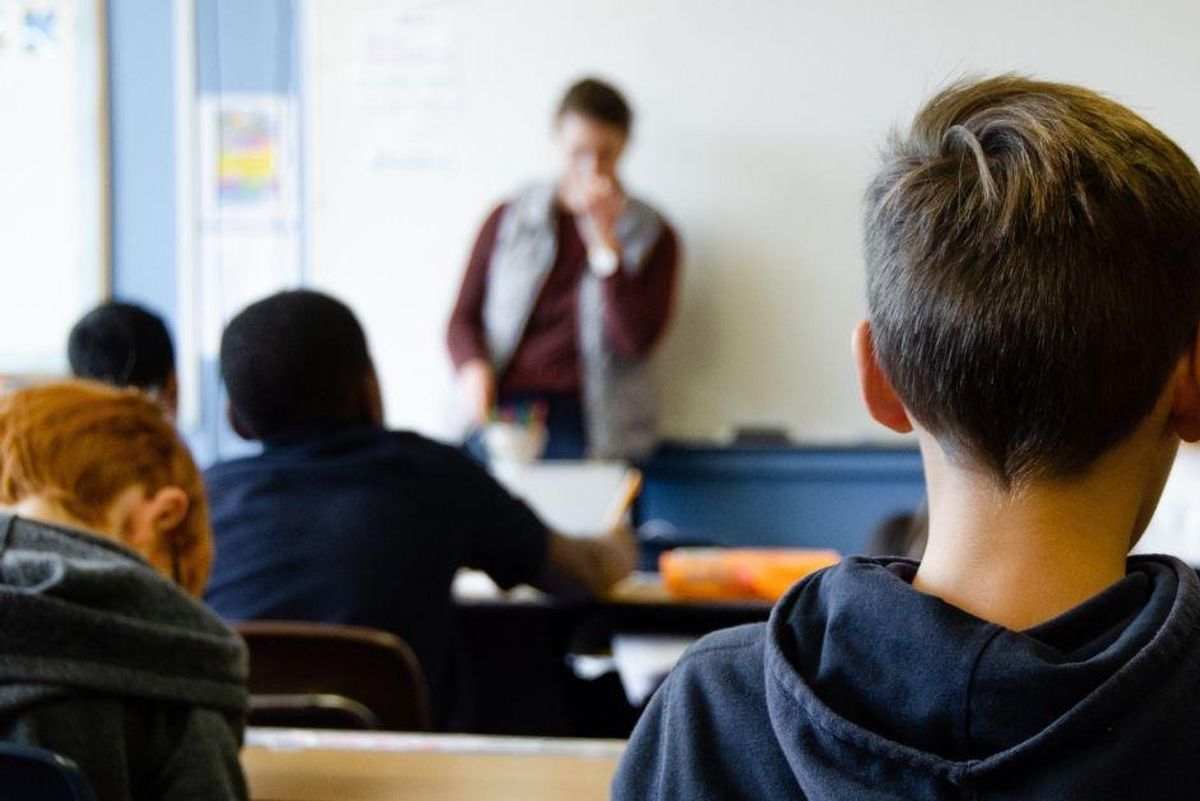How parents can help kids who are hesitant about returning to school

It's hard to believe that summer is almost over and the back-to-school season is right around the corner. The school year is approaching fast and since many kids have been home pandemic schooling for the past year and a half the return of "normal" is likely to bring kids and parents alike some anxiety about what the return to school will look like.
We have all been living through an extended trauma and this past year has impacted us in ways that we may not even realize—and we may not come to realize the scale in which we have been altered for years to come. Just as we have been learning to cope and navigate the world during a global pandemic, so have our children. They've been expected to perform at pre-pandemic levels for quite some time; this doesn't negate their very real reality of pandemic life.
Kids have had to readjust socially, and in many children this has caused a loss of social skills and increase in social anxiety. With school quickly approaching and the push for schools to open back to full capacity, it's completely normal to have heightened anxiety around the traditional opening of schools. How we handle this anxiety and prepare our children for their own challenges can make all the difference between having a rocky start to an already stressful new school year.
Checking in with your child on their feelings about returning to school should be the first step. Find out what their comfort level is and what they expect school to look like when they return. Then do some research to find out if the school's Covid policy for this year will allow your child's expectations to be met or if you need to help your child reexamine their expectations with the reality of the school district's policy.
Every school district likely has its own rules. Some may be requiring masks and social distancing, while others may be going back to pre-pandemic schooling, taking their chances without masks, trusting that families will do what's best for them. It's hard to say which schools will follow the CDC guidelines and which ones won't, so it's important to be informed about what your child's school is doing and evaluate your family's comfort level.
Practice some conversation starters. Especially if your child is generally shy or has developed some social anxiety. Masks make it more difficult to read facial expressions, and the traditional way of showing you're friendly or happy with something someone said is obscured. Having some phrases to pull out in a pinch may help your child feel more at ease in the school setting. These things don't have to be anything in depth, but the discussion about the possibility of a compliment helping to break the ice can calm an anxious child who may not have been in the physical classroom for an extended period of time.
It can be helpful to look at the things your child can control if hesitancy to return to the classroom is high. In a school setting this can get a little tricky, but if the school does not require masks and your child is more comfortable wearing a mask, that is something they can absolutely control. They can wear a mask. They can carry hand sanitizer and travel disinfectant wipes. They can also look to create their trusted group of friends to keep in their safe bubble. These would be the friends that are adhering closely to the personal guidelines that your child is most comfortable with. This will allow them to continue to socialize in and out of school, which will help with feelings of social isolation, depression and anxiety.
At the end of the day, school is coming back in a traditional way whether we are ready or not, so ensuring your child is prepared as best they can be will help decrease the stress surrounding the return. Introducing coping skills that kids can do from their desks in the event that their anxiety peaks is one of the most helpful preparation tools you can provide. Tools like deep breathing, grounding techniques such as the 5-4-3-2-1 method, a small stress ball, or a piece of felt with a calming scent sprayed on it that they can pull out and smell are all easy and helpful. Practicing these things before the first day of school will help it become easier for children to do if and when they need to center themselves. They're also helpful outside of the classroom for anyone who may be experiencing anxiety or stress.
The return of school is stressful during normal times, but even more so now. As parents, we can do our best to not only prepare our children through conversations and introducing new skills, but we can give them more of a leg up by modeling the skills they can use when possible. Kids are more likely to do what they see, and if they see you using the skills you're teaching them, they're more likely to use them when you're not around.
Jacalyn Wetzel, MSW, LCSW is a licensed clinical social worker and therapist as well as a mom herself.
- Mom's parody of 'simple hybrid' school plan has parents rolling (and ... ›
- The Grim Reaper protested to reopen schools alongside a group of ... ›
- Dr. Sanjay Gupta explains why his kids won't go back to school: 'This ... ›
- Photos of kids before and after their first day of school - Upworthy ›







 Rihanna Nails GIF
Rihanna Nails GIF Stop Right There The End GIF by Freeform
Stop Right There The End GIF by Freeform